PacificEthnoExp. Part VI. Wallis and FutunaMapSeptember 1–2, 2013 After two and a half days of sailing, the last of the boat’s alcohol supplies were gone, and Wallis appeared on the horizon. 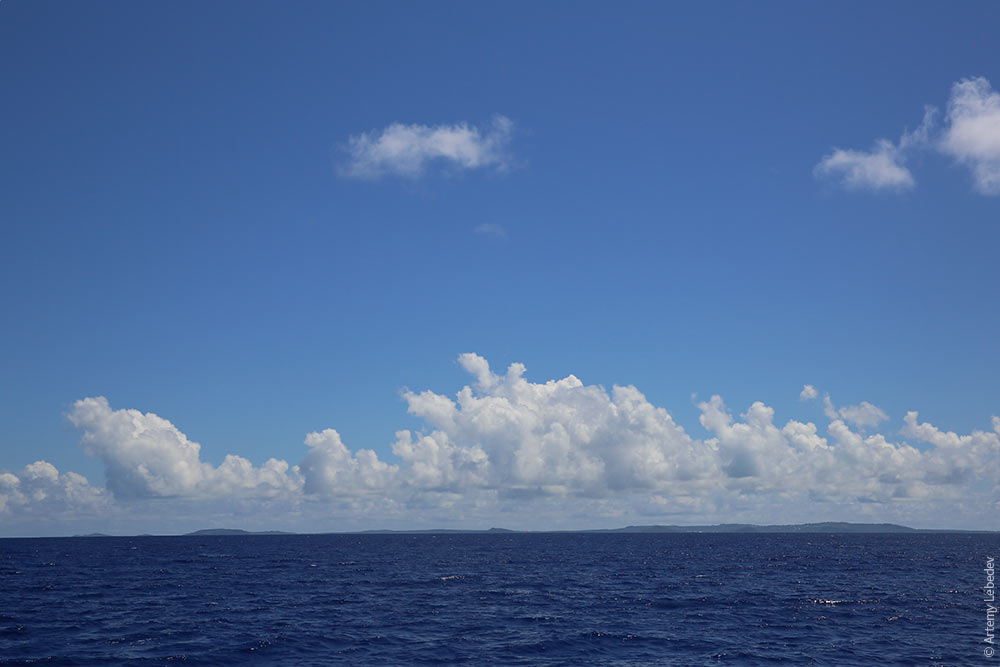 The island belongs to France, but most people have never even heard of Wallis and Futuna. Wallis is completely encircled by reefs and can be approached only through a narrow passage on the south side. 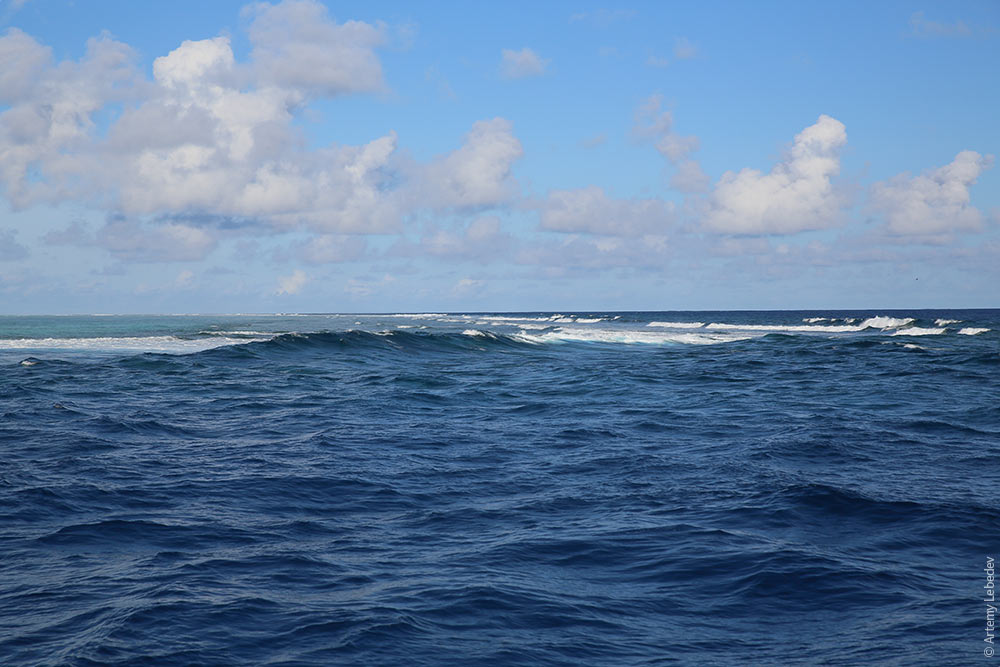 On the left is the capital, on the right you can clearly see the barrier reef. 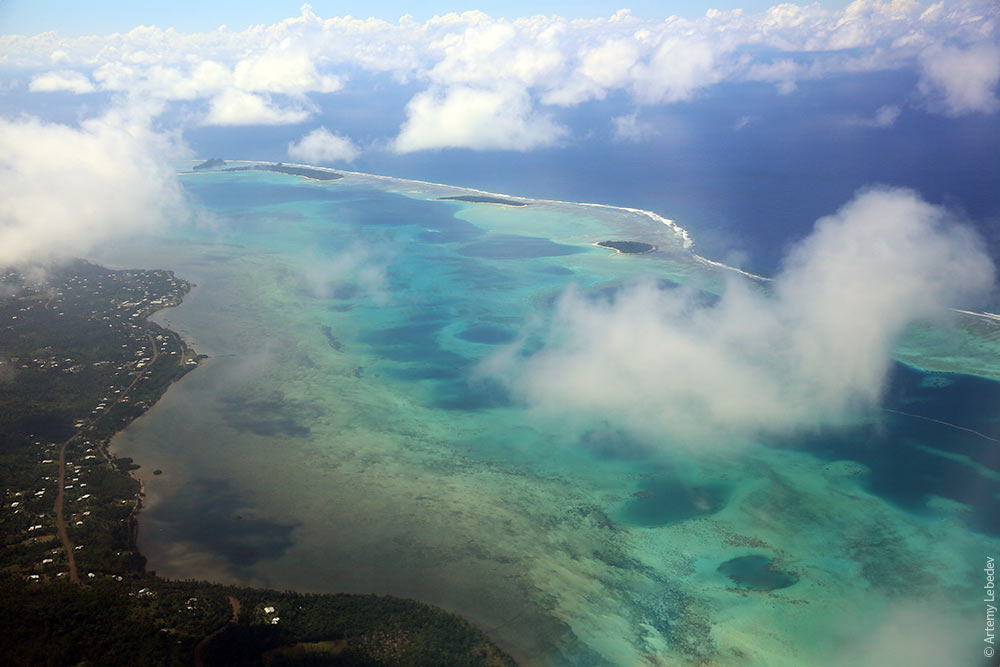 This place is so remote that French civil servants who work here get double or triple the normal salary. 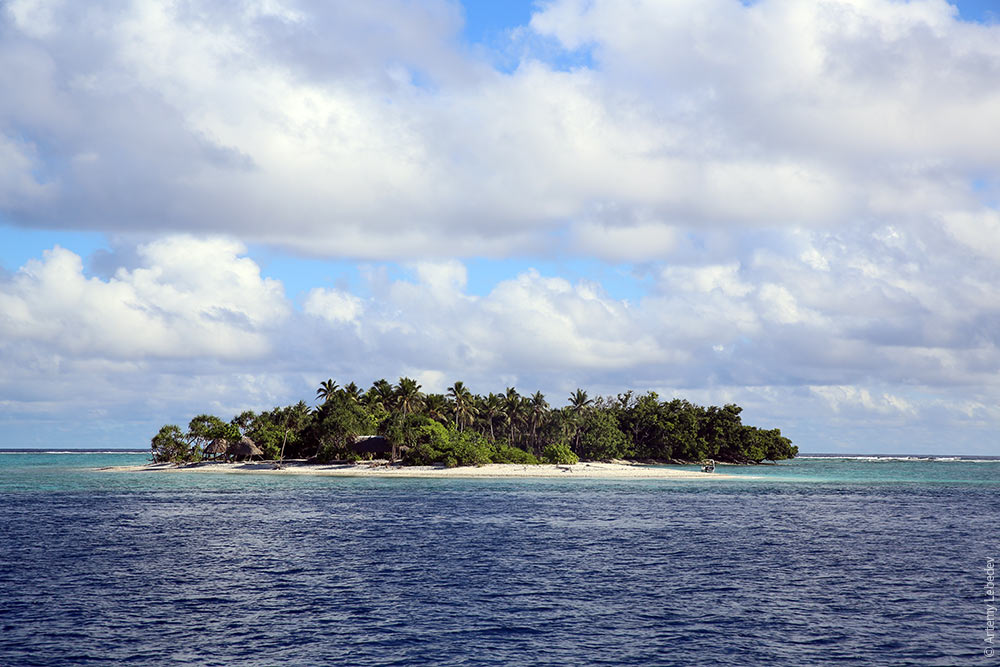 Our captain studies the pilot book and decides to park in the closest harbor along our course. The wind is better here, and there are supposedly taxis to the city. We enter the harbor—and find ourselves in the middle of a Polynesian boat race. In a scene straight out of a cheesy comedy, Julietta inadvertently ruins a couple of Olympic records. 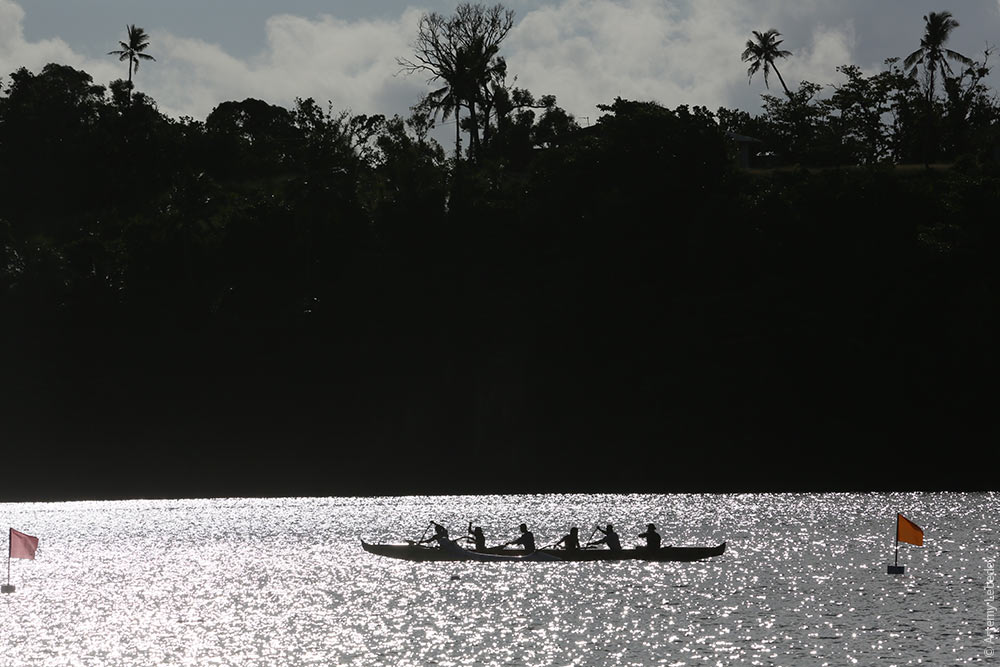 Wallis and Futuna rarely gets mentioned even in the countries of the Pacific Rim. And yet here it is, hosting international games with people from all over Polynesia in attendance. 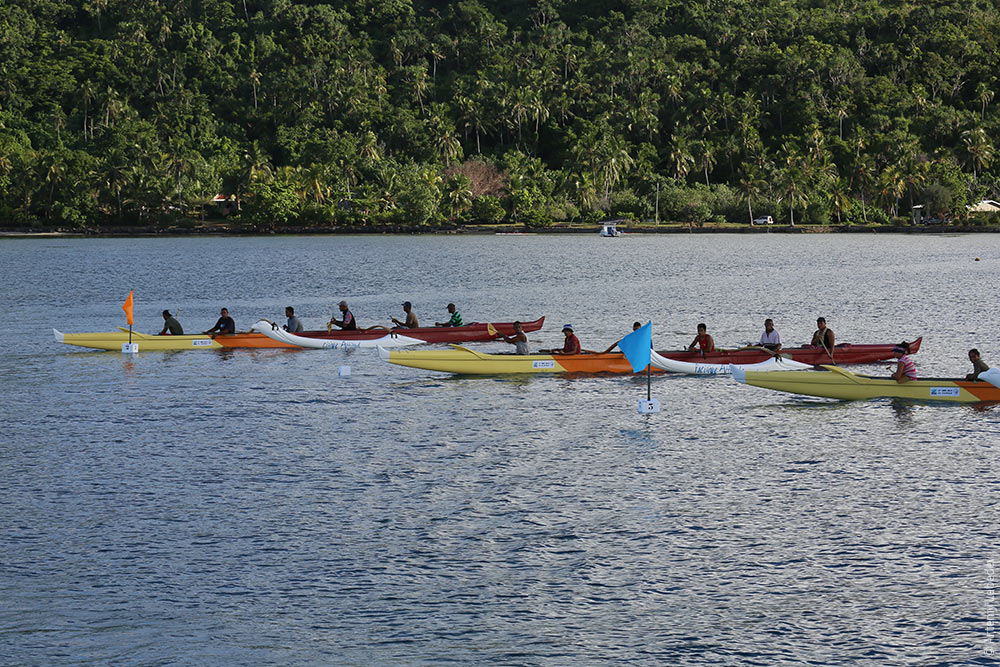 We head to the city to find dinner. Our boat is flying a French courtesy flag from her starboard spreader. I’m smacking my lips in anticipation of foie gras and good wine. 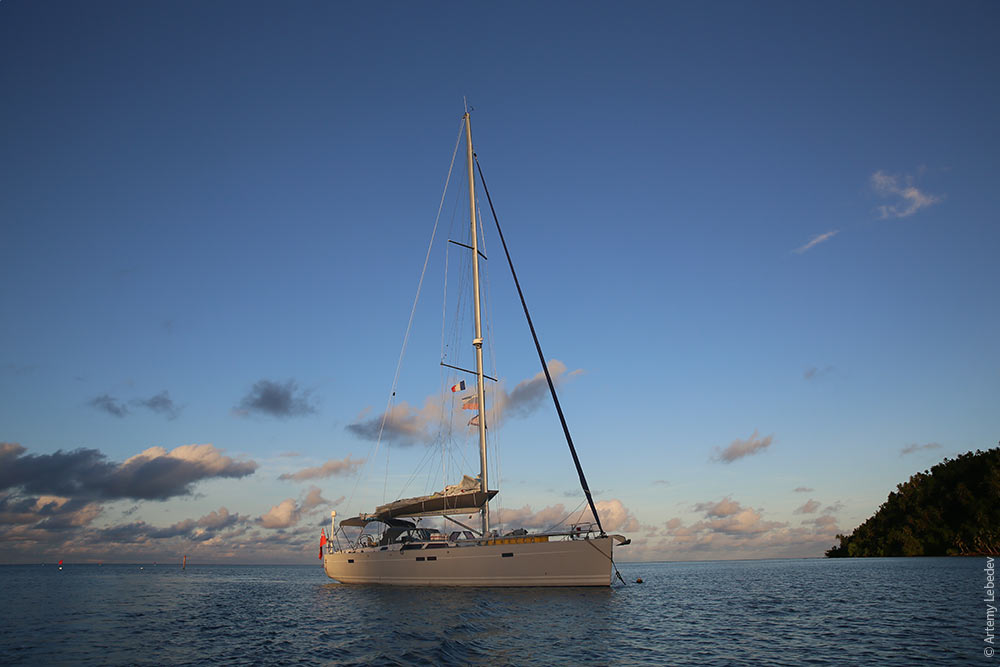 There are no taxis on the island. Apparently, there used to be, but the venture was abandoned because no one wanted to pay cab fare. The most people were willing to offer for a ride was a coconut. On the bright side, this is a great place to perfect your pickup skills. Ninety percent of the vehicles on the island are pickup trucks that are willing to give you a free ride—all you have to do is stick out your thumb. Voilà, skills perfected. Our entire team happens to perfectly fit into the bed of a pickup. 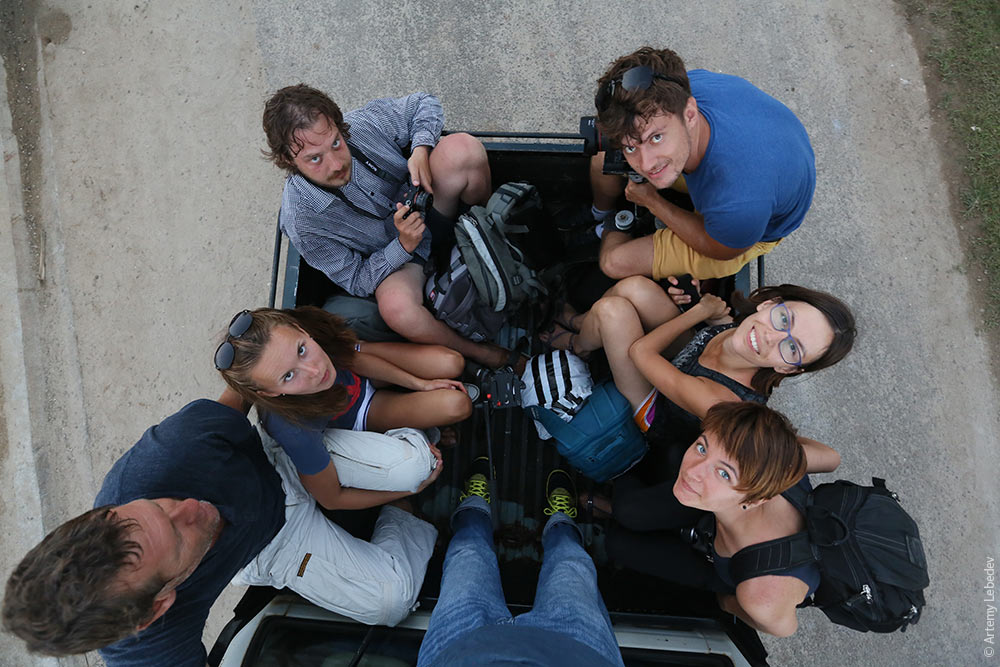 A view of Julietta. 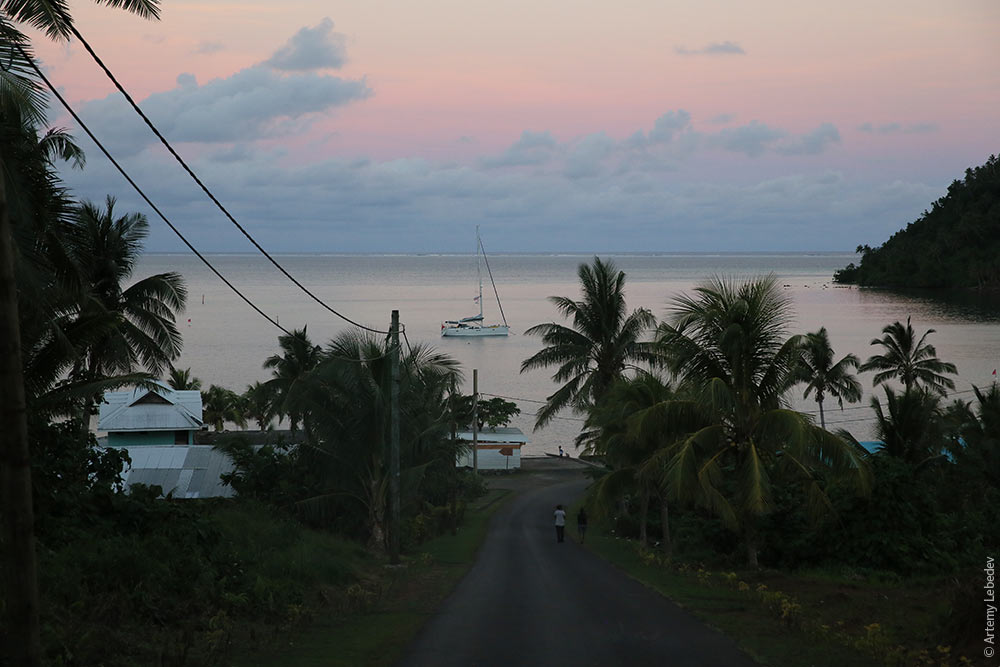 The driver drops us off in the main square. It consists of a parking lot in front of a supermarket and also contains the island’s only ATM with Polynesian francs. Some guy steps outside for a smoke and I jump on him with questions. He recommends a new restaurant, just up ahead and then right at the traffic circle. His friend opened it, it doesn’t have a name yet. The guy turns out to be the owner of the local travel agency, which opens at 8 a.m. the next day. He speaks decent English. Wallis is the second place in the world I’ve come across where the French speak English (the first was Saint Martin). We head off to dinner. The restaurant turns out to be a dumpy roadside joint with a basic menu of grilled meat and sausages. But the water they serve is Evian. Since the city is inundated with athletes, there’s no hope of getting a hotel. Everything is full. We go back to the boat to sleep. We set our alarm for 6 a.m. because we promised to vacate the waters before the races resume the next day. We’ll have to relocate to another spot closer to the city. I also want to try my luck at the travel agency in the morning to see if there are any plane tickets available. Wallis and Futuna is the last stop on our trip. But since planes only come through here once a week, we might be better off sailing to Fiji, where there are flights in all directions every half hour. The sun rises. We start the engine and set off. We’re going slowly and enjoying the early morning stillness. The rest of the team is still asleep. Everything is quiet. This lasts for about two minutes. Crash! Bam! Screech! Julietta’s rudder has run up on a reef. The captain emits a string of expletives, which he’d painstakingly avoided using throughout the entire preceding three weeks. The echo, surprised but obedient, delivers the ends of those words to the little church, palm trees and beach bar on the shore. It’s low tide. The captain and cameraman dive into the water to see what’s going on below. 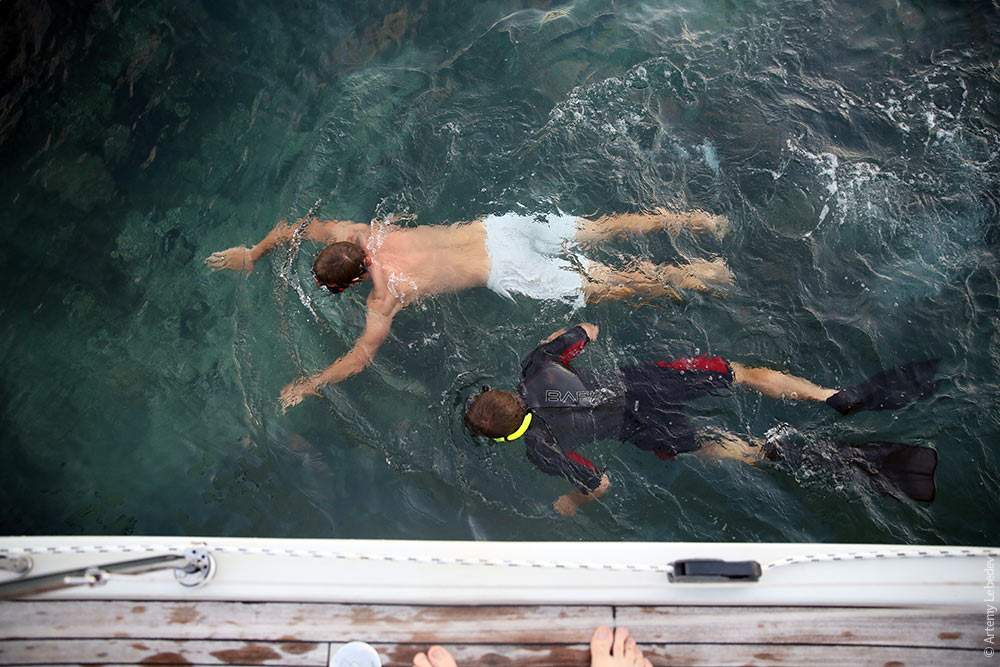 Miraculously, we manage to get off the reef and return to the mooring buoy. Julietta snagged the reef with her rudder, warping the rudder and tearing the rudder shoe into two pieces. 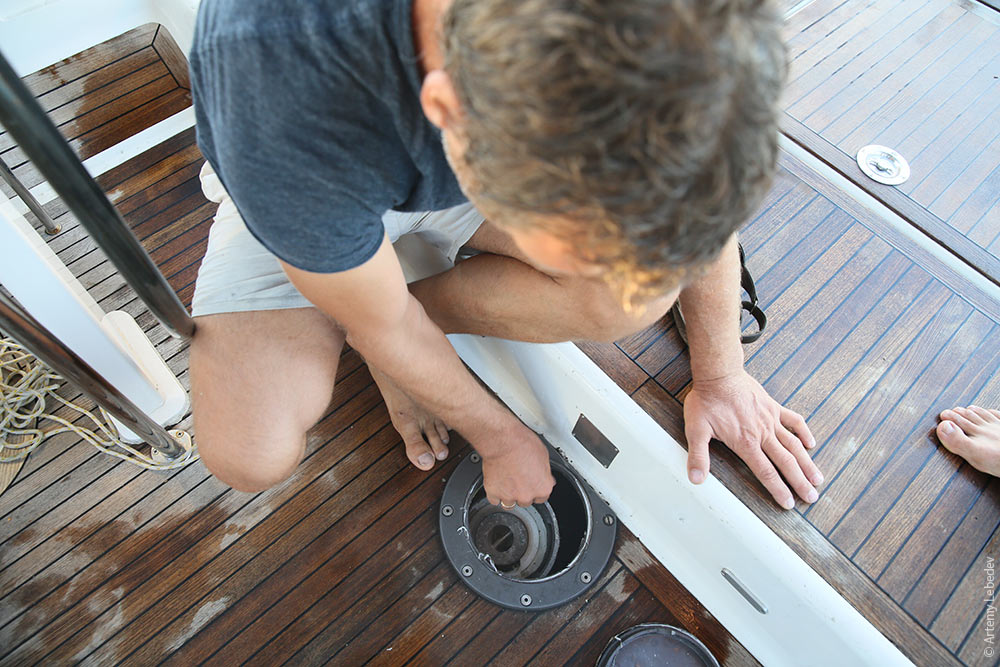 Attempting to fly out today suddenly starts to make a lot more sense. We flag down a pickup and head downtown to get our passports stamped and buy tickets. Wallis and Futuna Telecom. 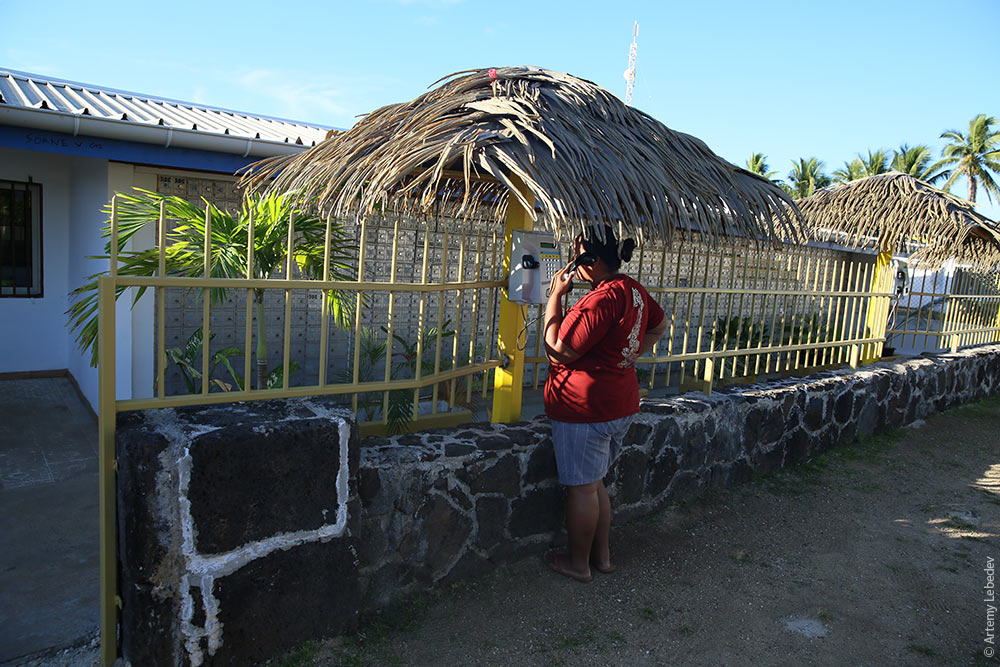 Painting the town. 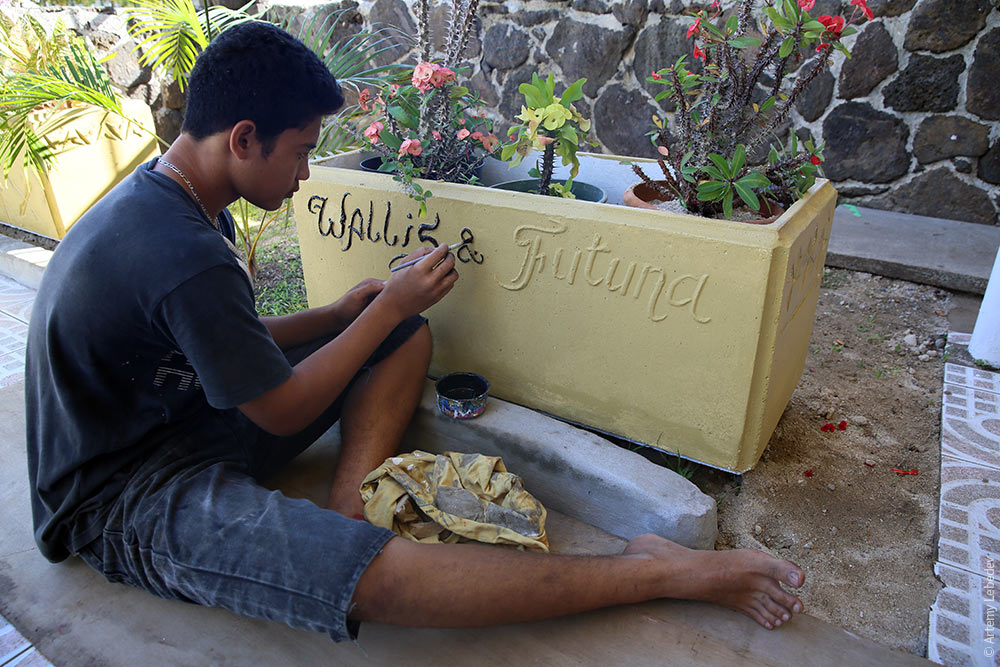 The raised concrete words and designs on concrete slabs are the only interesting sight on the island. 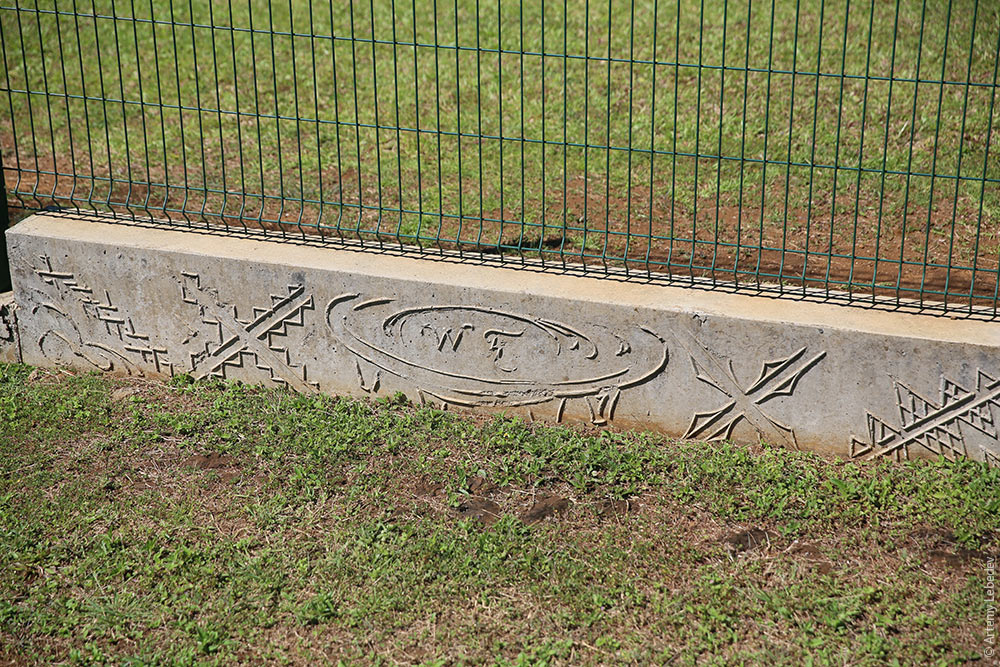 Although some people might also appreciate the wedding-cake cathedral. 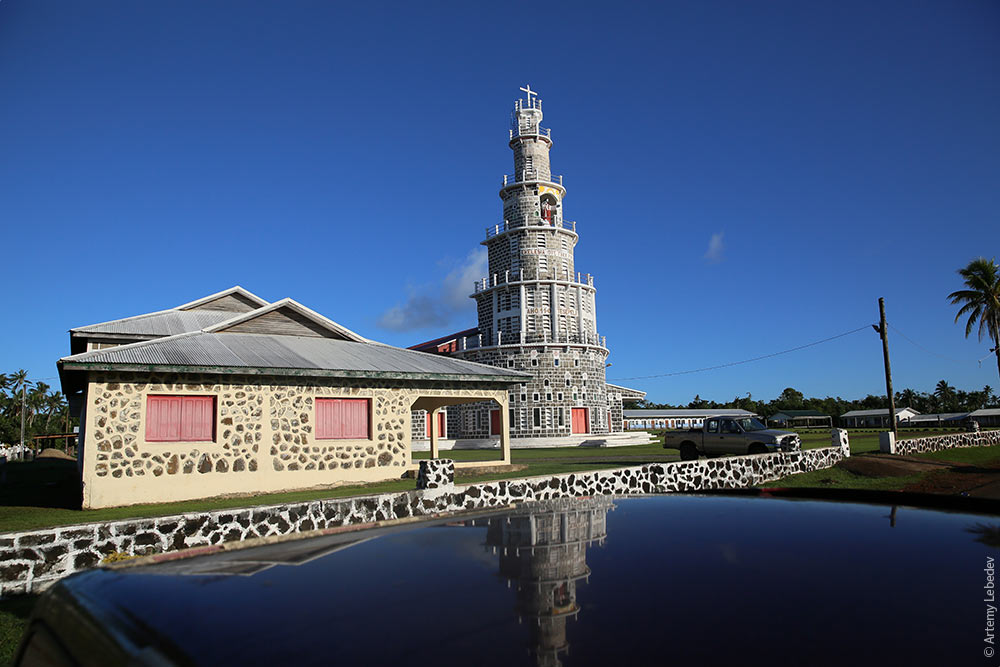 Cars have white license plates on the front and yellow ones on the back (like in Kenya, Sri Lanka, Algeria, Uganda, or Great Britain). 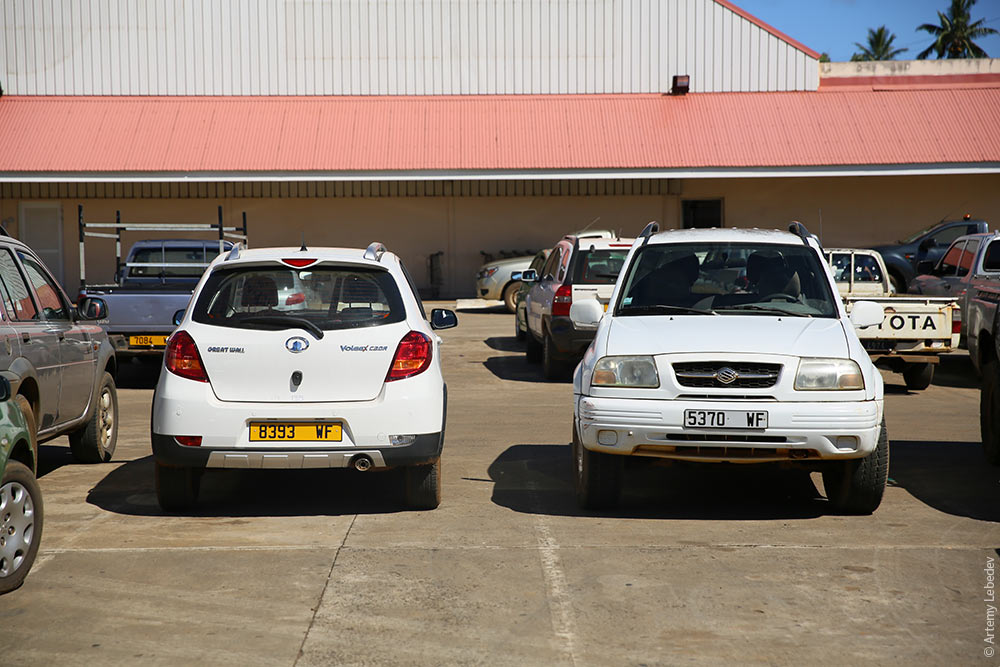 Electricity meters. 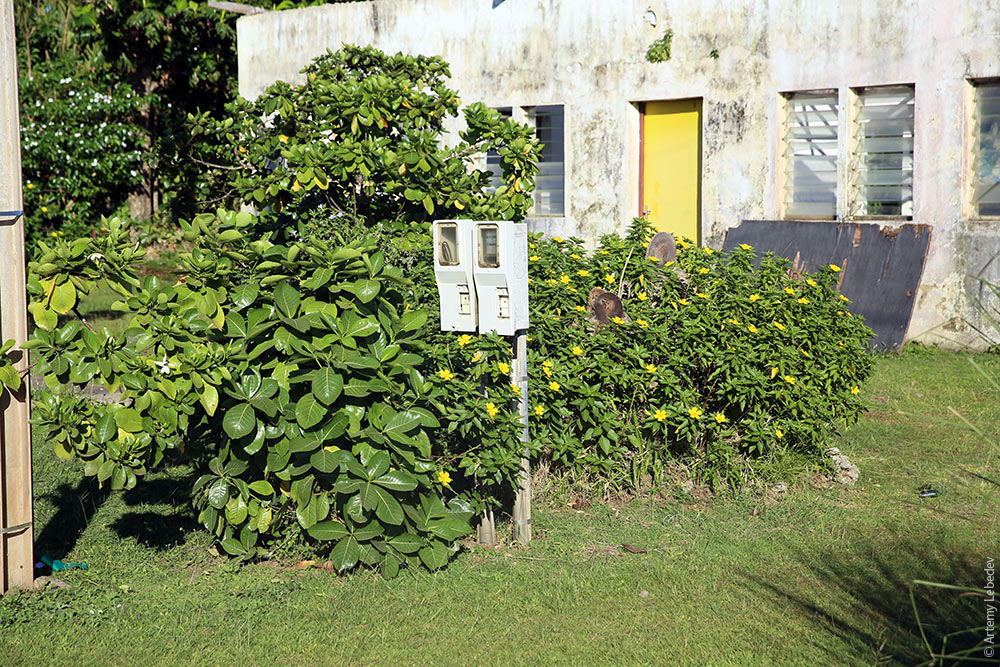 A fire hydrant. 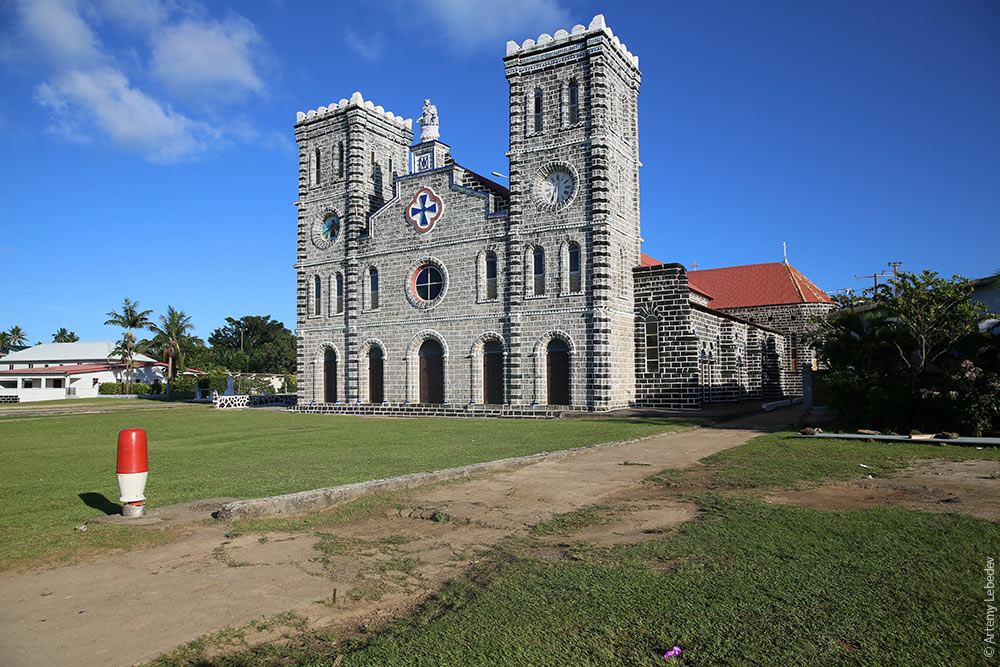 Three palms. 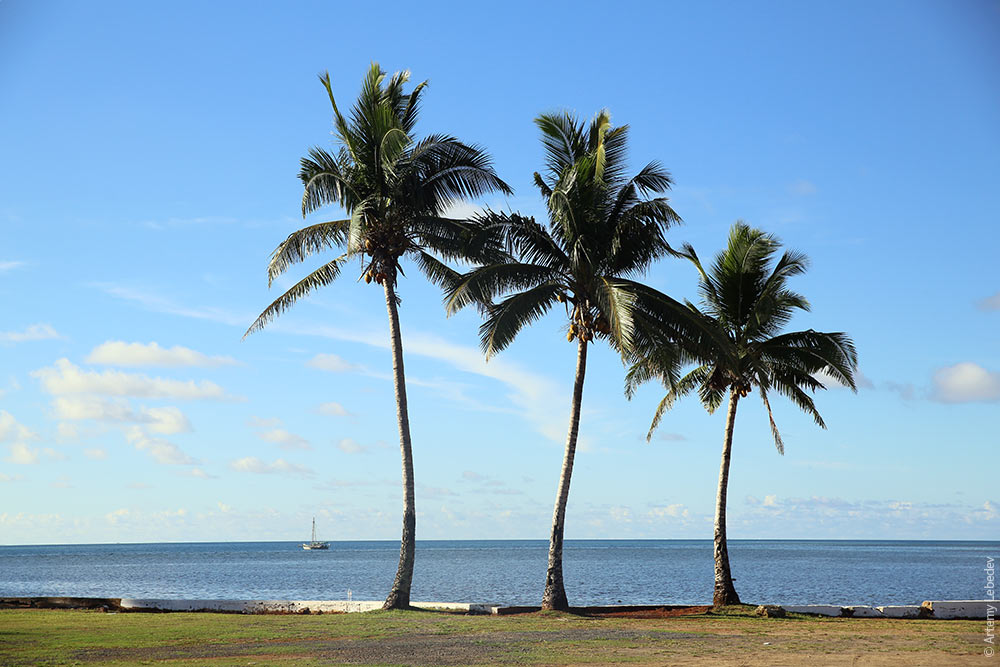 Sonny, give grandpa his crutches back! 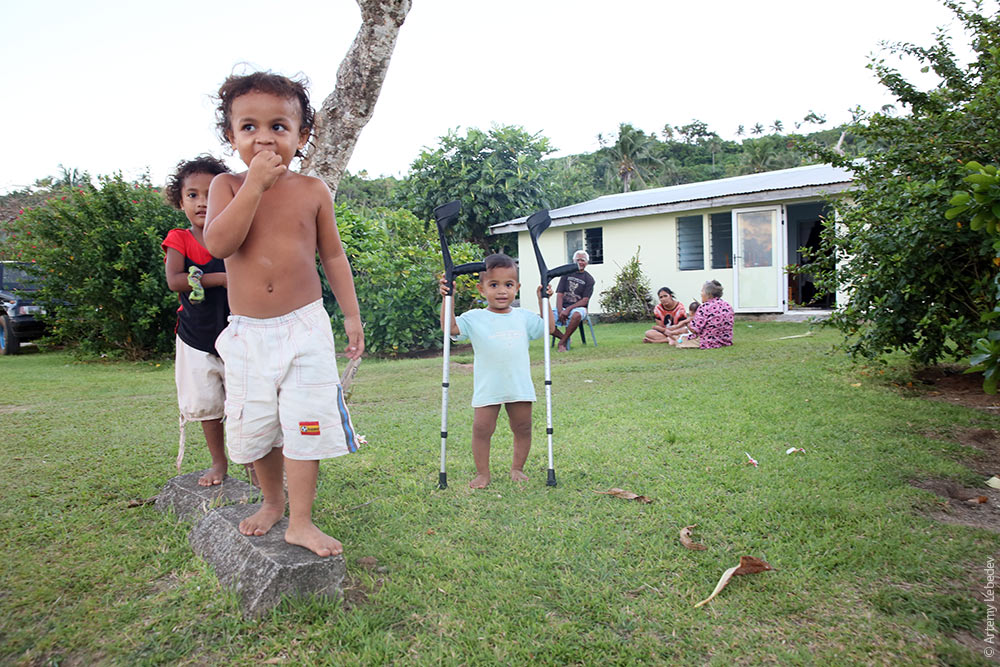 Wayfinding signs. 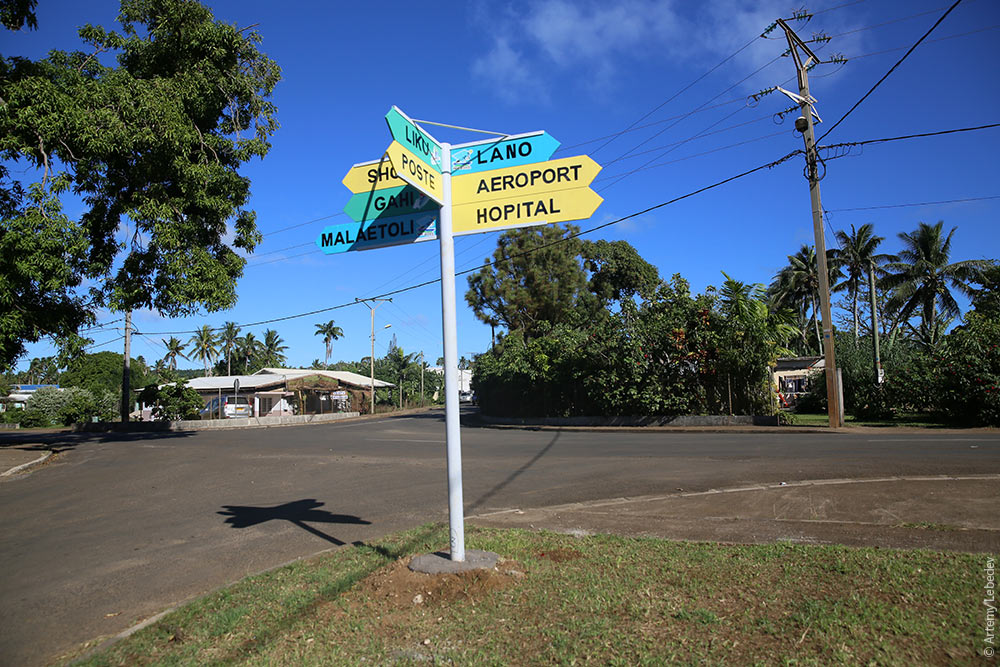 A garbage truck. 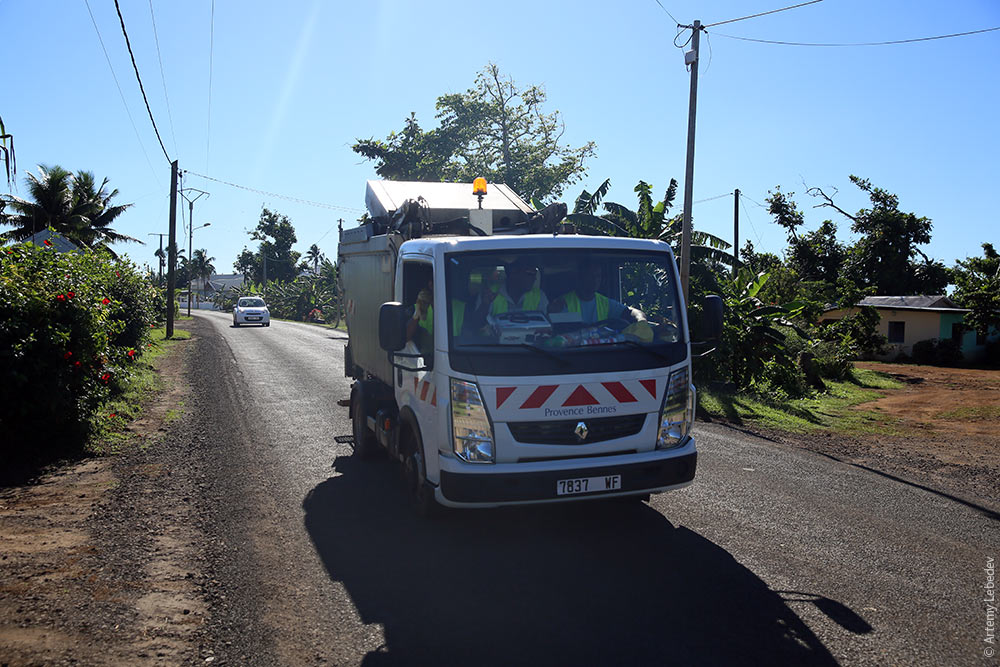 A bakery. 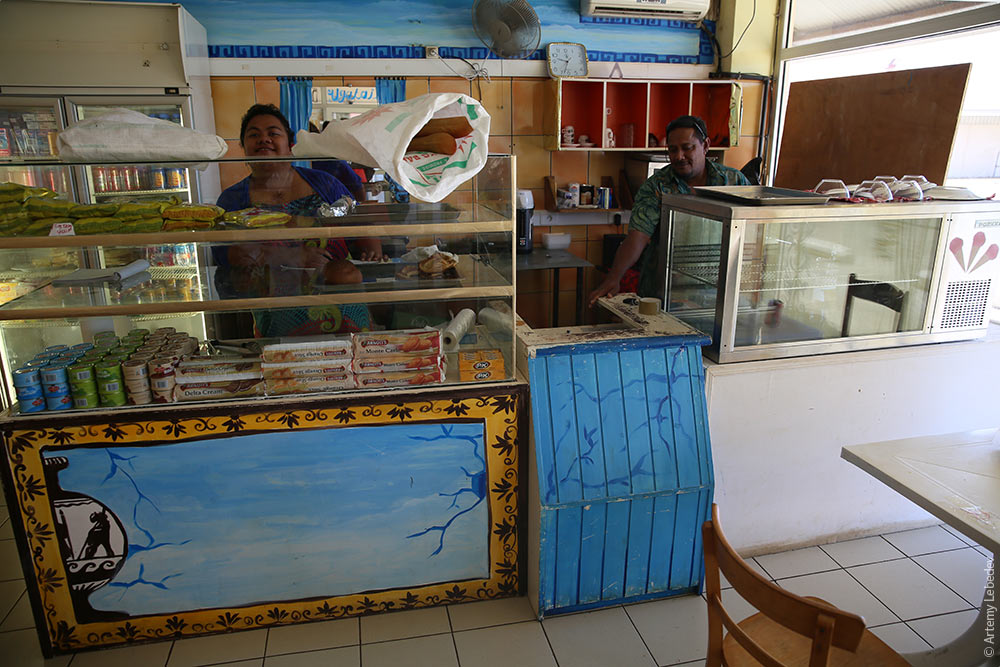 A street trash can. 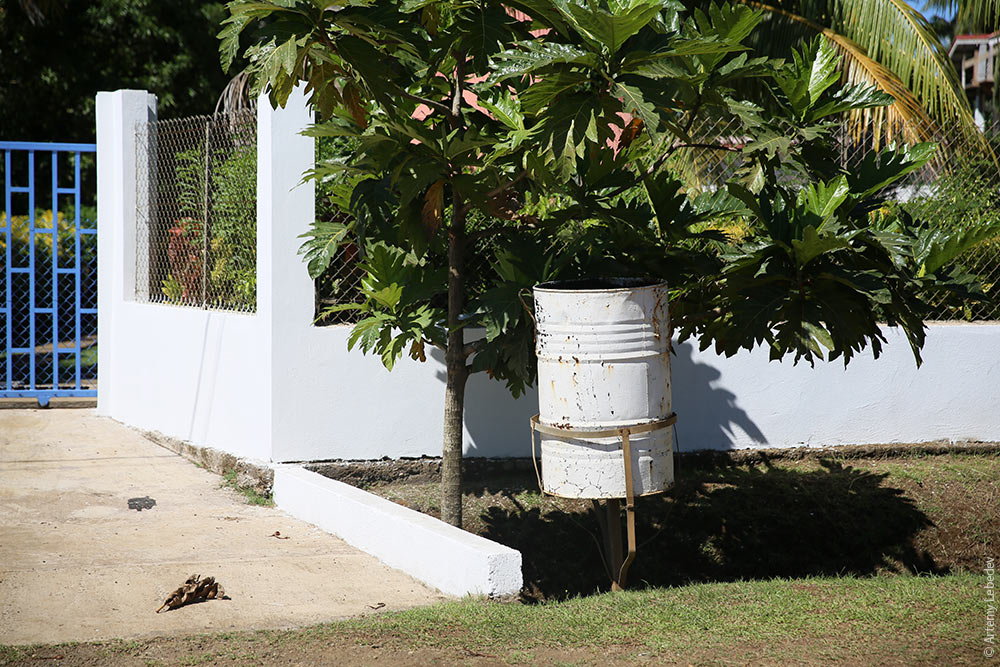 This is the central downtown square around which life revolves: a supermarket parking lot and a basketball gym behind it. 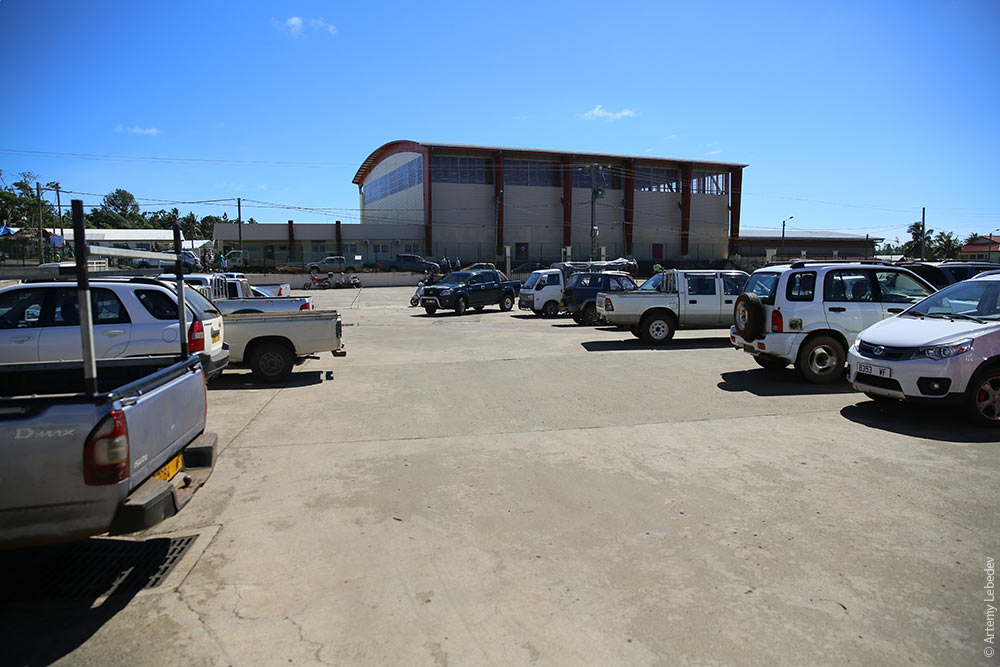 Ok, so it’s pretty boring. But you get triple the pay. * * * Planes fly through Wallis and Futuna only once a week and they’re always completely full. But a miracle happens: there are still five seats left on today’s flight. And there are exactly five of us. We fly out to Fiji at noon. The last few rows of seats on the plane are folded down and there’s a stretcher set up on top of them. 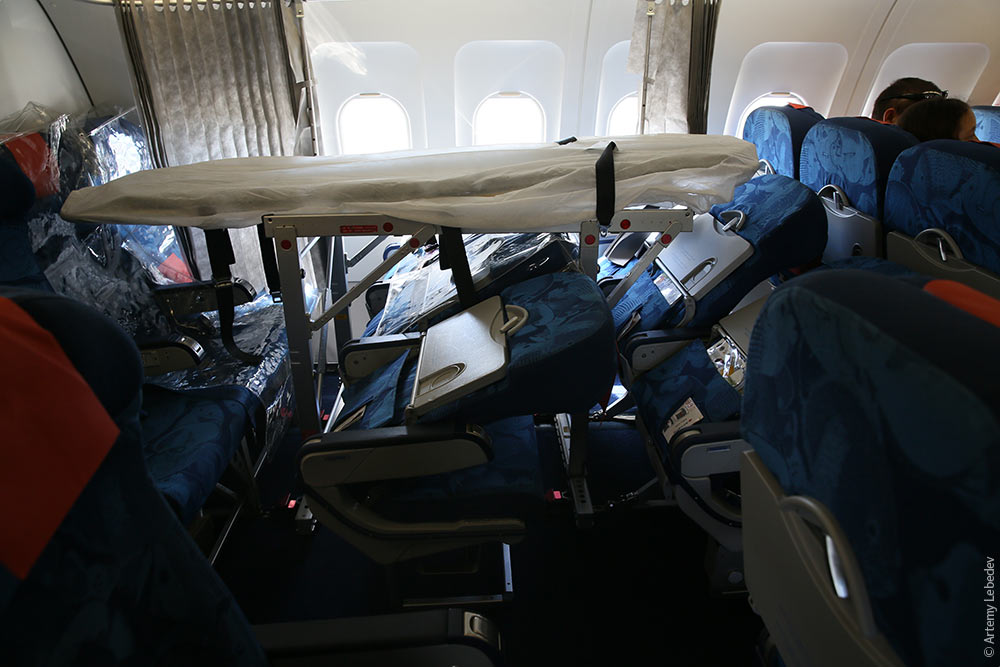 Soon, a corpse is carried in, but it turns out to be a living person. The doctor straps him in, hangs an IV drip from the overhead luggage compartment, and sets up a vitals monitor. When lunch is passed out, he eats his sandwich with one hand while keeping the other on the patient’s pulse. 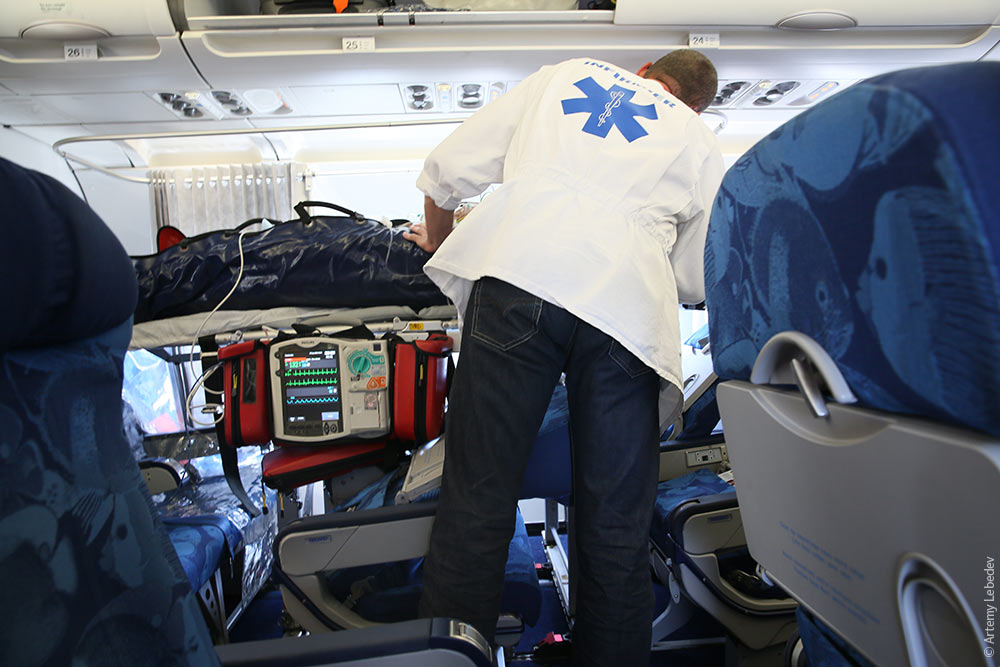 Looking at them, I recall how many times in my life I’ve been either the patient on the stretcher or the doctor with the sandwich. You never know what life has in store for you. But it’s an awfully interesting adventure every time. |